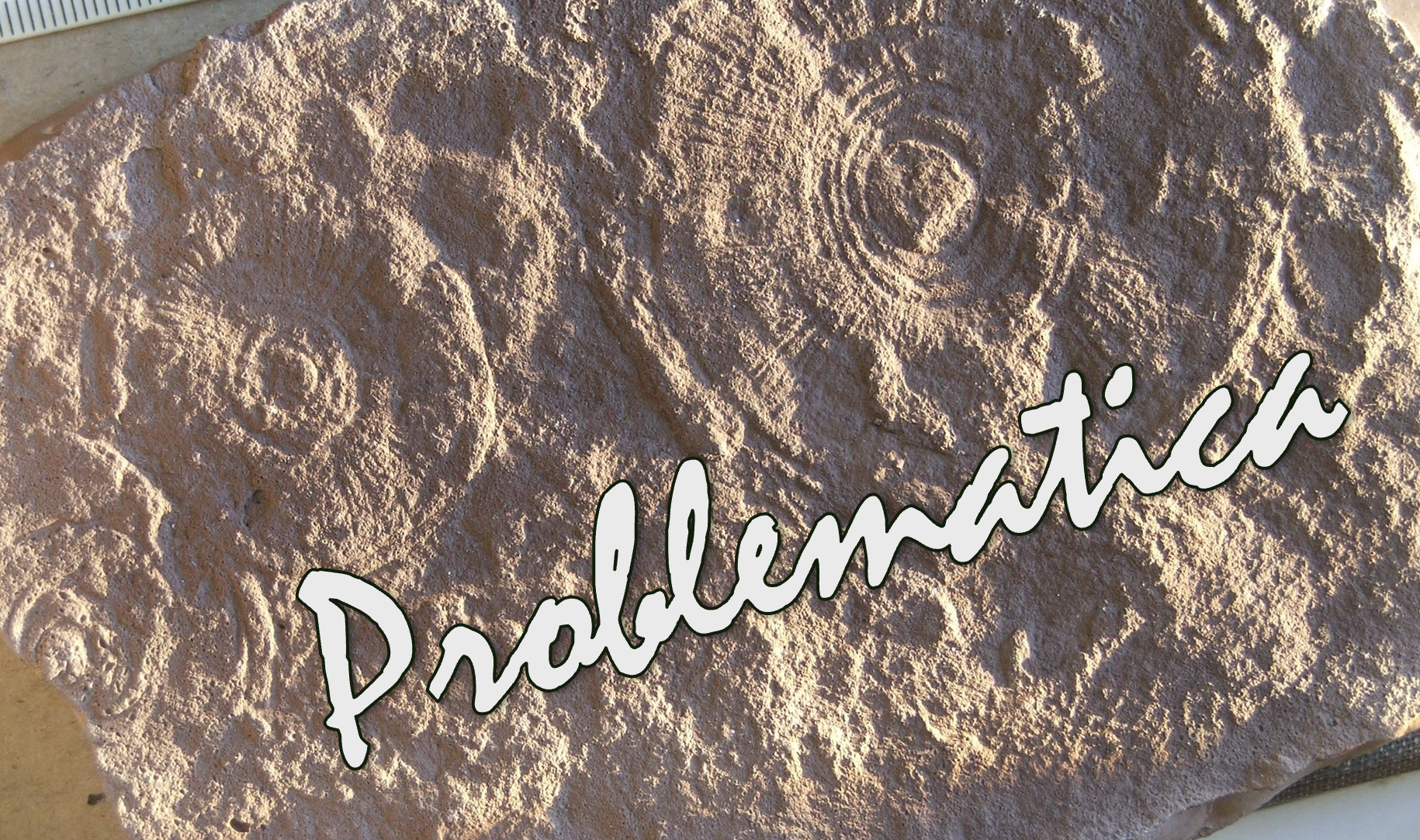* Hold the phone— this is an emergency installment of “Problematica.” It is written by Max Dresow…
Okay, someone help me out with this. Because it is genuinely weird, and I feel like I’m going insane.
It is common knowledge among people interested in the discovery of the Ediacaran fauna that Reg Sprigg, the person who first discovered these soft-bodied fossils, (1) posted a letter to Nature in 1947, which described the discovery, and (2) was disappointed to have this letter rejected by the journal.
Histories of the discovery routinely mention the rejected letter. Here, for example, are Susan Turner and David Oldroyd, writing in the 2009 volume, The Paleobiological Revolution:
Now comes the really sad part of this story. Between the reading and publication of his 1947 Royal Society paper Sprigg, “feeling that the discovery was epochal” (as in fact it was to become so for paleontologists, if not politicians), prepared a letter to Nature about his discoveries and posted it on 15 October, 1947 (Sprigg 1988, 50). But it was turned down. This document has not been discovered and may no longer be in existence; and according to Henry Gee, of the present editorial staff of Nature, the journal does not have records from that period. So we don’t know who may have been responsible for blocking what should indeed have been an epochal paper.
And here is Kristin Weidenbach, writing about the discovery in Rock Star, her 2008 biography of Sprigg:
Far from setting the scientific world afire, Reg’s seminal paper describing the discovery of the oldest animal fossils in the world, sank without a trace after it appeared in the Transactions of the Royal Society of South Australia in December 1947. When he sent a notice of his findings to the editor of the prestigious English scientific journal, Nature, his request to publish was declined.
Here is a sentence from The Rise of Animals, a massive 2007 book on the Ediacaran fauna:
A paper describing the Ediacara fossils submitted by Sprigg to Nature in 1946 [sic] had been rejected… (Gehling and Vickers-Rich)
Here is, uh, me, running my mouth in History and Philosophy of the Life Sciences…
His one attempt to get a letter into Nature failed— probably owing to a hostile review— and he never renewed the effort.
….and me again, in Perspectives on Science:
His dismay was compounded when a letter announcing these fossils was rejected by the journal Nature.
Oh yeah, and here is Sprigg himself, writing in a 1988 retrospective in Earth Sciences History:
Feeling that this Ediacaran discovery was epochal, a letter was dispatched (October 15, 1947) to “Nature,” but it was never accepted for publication.
Why am I becoming increasingly hysterical as I go through these examples? Because of THIS:
Now, this looks like the very letter everyone (including Sprigg himself, and me, twice) said was rejected. So, like, did Sprigg not know it was accepted? Did no one tell him? And, when Turner and Oldroyd emailed Henry Gee to ask about the fate of the letter, did he not notice that they printed the damn thing?
I feel like my brain is melting.
When I first stumbled upon this like 45 minutes ago, I couldn’t access the article because of the paywall. And I was worried that something fishy was going on, because, frankly, this whole thing is weird. Like, maybe the letter was located and published recently, and that’s why it’s available online, only backdated. But, no, here is the letter from a microfilm scan of the April 10, 1948 issue of Nature:
The journal even printed a grainy, and almost worthless picture of two of the fossils.
So, basically, my question is: what the hell? Why did none of us catch this, including— I will say it again— Sprigg himself, who was still in his feelings forty years later? I assume it was a simple mistake, perpetuated by people who took Sprigg at his word.* But it’s just so weird, and it makes me feel like I must be missing something.
[* South Australia is pretty isolated, and Sprigg seems to have been isolated even within the community of South Australian paleontologists. So I would assume this has something to do with how he missed his own Nature letter.]
* * *
That’s it— that’s the whole post. I just wanted to share this, and to invite people to weigh in. Am I missing something? Did I just make the historical discovery of the century? Am I losing it? (Seriously, email me.)
Oh, and I’m sorry that I’ve apparently been spreading historical misinformation. I blame Reg Sprigg!



